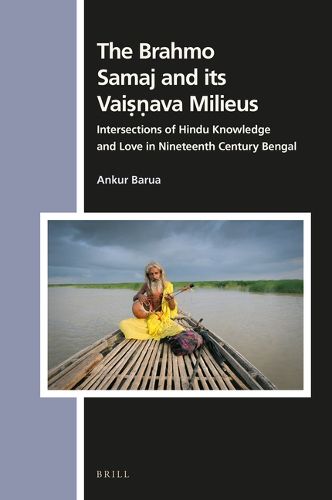Readings Newsletter
Become a Readings Member to make your shopping experience even easier.
Sign in or sign up for free!
You’re not far away from qualifying for FREE standard shipping within Australia
You’ve qualified for FREE standard shipping within Australia
The cart is loading…






In The Brahmo Samaj and its Vaisnava Milieus: Intersections of Hindu Knowledge and Love in Nineteenth Century Bengal, Ankur Barua offers an intellectual history of the motif of religious universalism in the writings of some intellectuals associated with the Brahmo Samaj (founded in 1828). They constructed Hindu worldviews that were simultaneously rooted in some ancient Sanskritic materials and orientated towards contemporary universalist visions with western hues. These constructions were shaped by their dialectical engagements with three groups: members of the Bengali middle classes with sceptical standpoints (‘Young Bengal’), Christian missionaries, and Hindu Vaisnava thinkers. In this genealogy of religious universalisms, Barua indicates how certain post-1900 formulations of the universalist compass of Hinduism were being enunciated across Brahmo circles from the 1820s.
$9.00 standard shipping within Australia
FREE standard shipping within Australia for orders over $100.00
Express & International shipping calculated at checkout
In The Brahmo Samaj and its Vaisnava Milieus: Intersections of Hindu Knowledge and Love in Nineteenth Century Bengal, Ankur Barua offers an intellectual history of the motif of religious universalism in the writings of some intellectuals associated with the Brahmo Samaj (founded in 1828). They constructed Hindu worldviews that were simultaneously rooted in some ancient Sanskritic materials and orientated towards contemporary universalist visions with western hues. These constructions were shaped by their dialectical engagements with three groups: members of the Bengali middle classes with sceptical standpoints (‘Young Bengal’), Christian missionaries, and Hindu Vaisnava thinkers. In this genealogy of religious universalisms, Barua indicates how certain post-1900 formulations of the universalist compass of Hinduism were being enunciated across Brahmo circles from the 1820s.